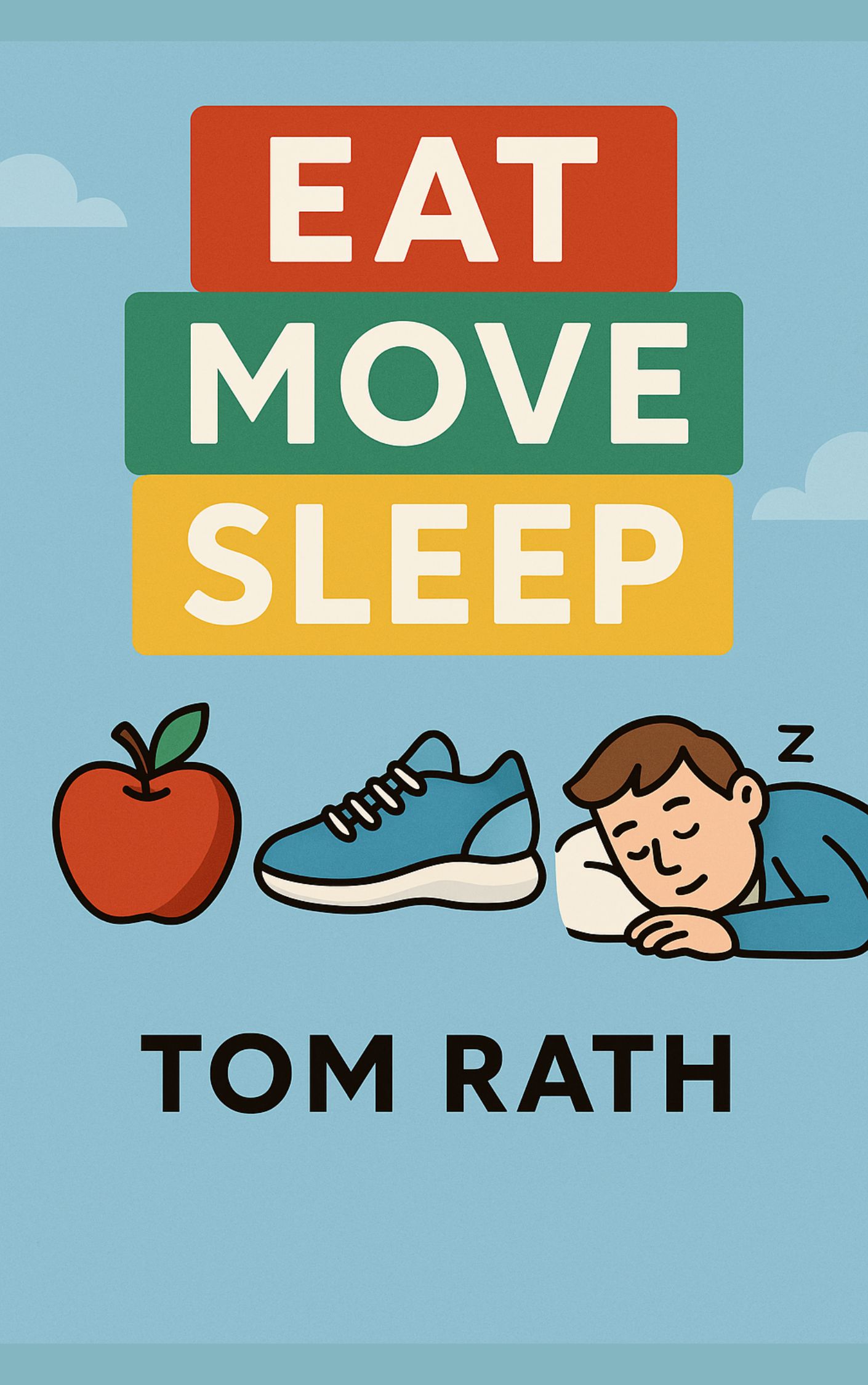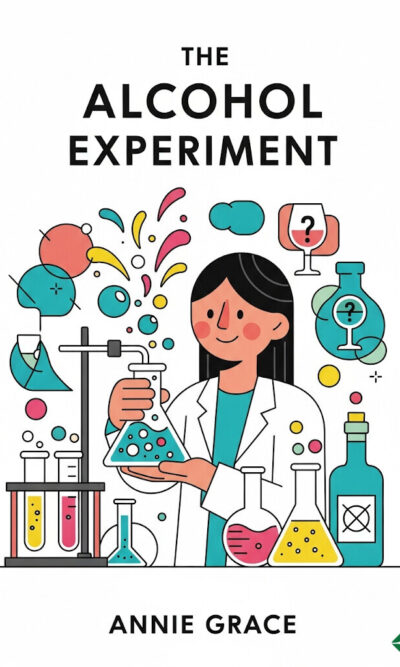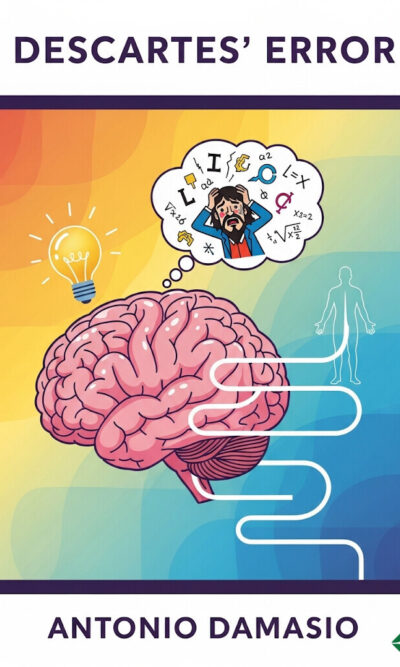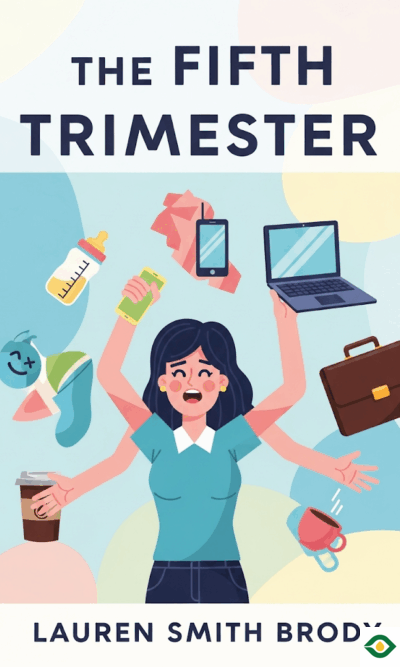Description
Good health is not about one big change. It is about many small decisions you make every single day. The way you eat, the way you move, and the way you sleep all work together to decide how strong, energetic, and focused you feel. The book Eat, Move, Sleep by Tom Rath shows how simple actions can help anyone live longer and better.
Most of us try diets, gym memberships, or short-term programs that promise fast results. But these rarely last. The truth is, there is no quick fix. What really works are daily habits that are easy, realistic, and consistent. Instead of pushing yourself into extremes, you can create little routines that add up over time. Choosing water over soda, walking during breaks, or turning off your screen before bed may not seem huge. But these choices, repeated again and again, shape your future health.
The author speaks from personal experience. Tom Rath was diagnosed at a young age with a rare genetic condition that makes him more likely to develop cancer. Faced with this challenge, he decided not to give up. Instead, he focused on the parts of his life he could control. By improving his food choices, his activity levels, and his sleep patterns, he has been able to live a productive and fulfilling life despite his health risks. His story proves that lifestyle has the power to overcome even serious obstacles.
One important lesson is that food is not just fuel, but a daily medicine. What you eat today shapes how you feel tomorrow. The goal is not only to count calories but to pay attention to the quality of the food. High-protein meals with vegetables, fruits, and healthy fats keep your body strong and your energy steady. On the other hand, sugary snacks and refined carbs may give you a quick boost but leave you tired and unhealthy in the long run.
Think of food in terms of net gain or net loss. Every bite either helps your body or hurts it. For example, a salad with grilled vegetables and beans is a net gain. But if you cover it in creamy dressing and fried toppings, it quickly becomes a net loss. Even small changes, like reducing sauce, choosing fresh ingredients, or replacing soda with water, can shift your diet in a positive direction. Over time, these choices add up.
Protein is especially important. It helps repair your muscles, balances your blood sugar, and keeps you feeling full longer. Aim for meals that include a balance of protein and carbohydrates, ideally one gram of protein for each gram of carbs. But not all protein is equal. Lean meats, fish, beans, eggs, and nuts are better than processed meats like bacon or sausages. And avoid packaged foods like chips and cookies, which often contain far too many empty carbs.
Movement is the second key pillar. Many people believe that hitting the gym a few times a week is enough, but science shows otherwise. Sitting too much is harmful, even if you exercise. Long hours at a desk, in front of the TV, or behind the wheel increase your risk of heart disease, diabetes, and early death. Simply standing up more often, walking around the office, or stretching at home can make a big difference.
The goal is to reduce long periods of inactivity. That means choosing stairs over elevators, walking to lunch instead of driving, or taking short breaks to move during the day. These habits do not require special equipment or extra time. They are built into your daily routine. At home, you can add light workouts like bodyweight exercises, yoga, or treadmill walks while watching TV. Even household chores like cleaning or gardening count as valuable movement. The important thing is to stay active often, not just during scheduled workouts.
The third pillar is sleep, and it is often the most neglected. Many people believe that staying up late to work harder shows dedication. In truth, lack of sleep weakens your performance, slows your memory, and makes you less creative. Just losing 90 minutes of sleep can reduce your alertness by one-third. Sleep is not wasted time—it is a natural tool for success.
During sleep, your brain processes memories, your body repairs cells, and your mood resets. High achievers in many fields often sleep longer and better than average people. Good sleep is linked with stronger immunity, better focus, and more resilience against stress. Yet modern life tempts us to cut corners on rest. Phones, televisions, and late-night work all keep us awake longer than we should.
Improving sleep quality is just as important as getting enough hours. If you lie in bed for eight hours but toss and turn, your body does not benefit as much. Deep sleep and REM sleep are especially important. To improve them, limit screen time before bed, keep your room dark, and stick to regular sleep hours. Avoid hitting the snooze button repeatedly, because broken sleep reduces its benefits. Instead, set your alarm for the latest possible time and wake up once.
Another hidden danger that affects eating, movement, and sleep is sugar. Sugar is not just a harmless treat; it is addictive and damaging. It feeds obesity, diabetes, and even cancer. The average person eats their own weight in sugar each year, much of it hidden in processed foods and drinks. Sugar hijacks the brain’s reward system, making you crave more. The more you eat, the more your body demands, similar to smoking or drinking alcohol.
The best way to avoid sugar’s grip is to cut it out where possible. Choose foods with natural sweetness like fruit instead of processed desserts. Check labels for hidden sugars under names like corn syrup, fructose, or dextrose. Over time, your taste buds will adjust, and natural foods will start to taste better. Reducing sugar not only protects your long-term health but also stabilizes your daily energy and mood.
In the end, the message is clear: big results come from small choices. You do not need to overhaul your life overnight or follow extreme diets. Instead, you can build a foundation of health by making steady, simple improvements in how you eat, how often you move, and how well you sleep. These three elements are deeply connected. Eating better fuels your activity, movement improves your rest, and sleep strengthens your willpower to make good food choices. Together, they create a cycle of strength, energy, and resilience.
A healthier life is possible for everyone, no matter your background or your genetics. You may not be able to change your DNA, but you can change your habits. By choosing nourishing foods, staying active throughout the day, and prioritizing restful sleep, you are giving yourself the best chance at a long and meaningful life.





